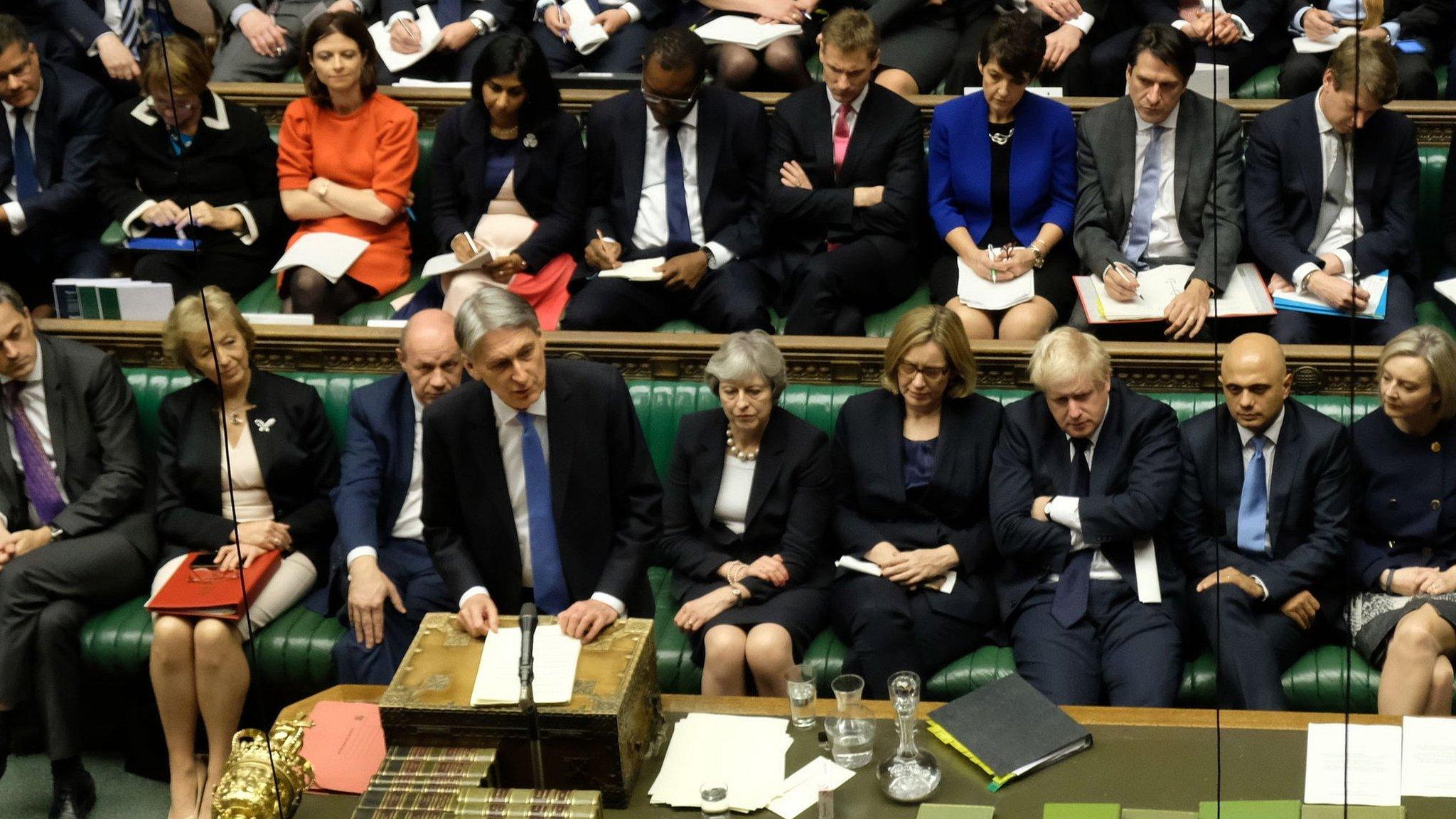Budget 2017: Your questions answered
- Published
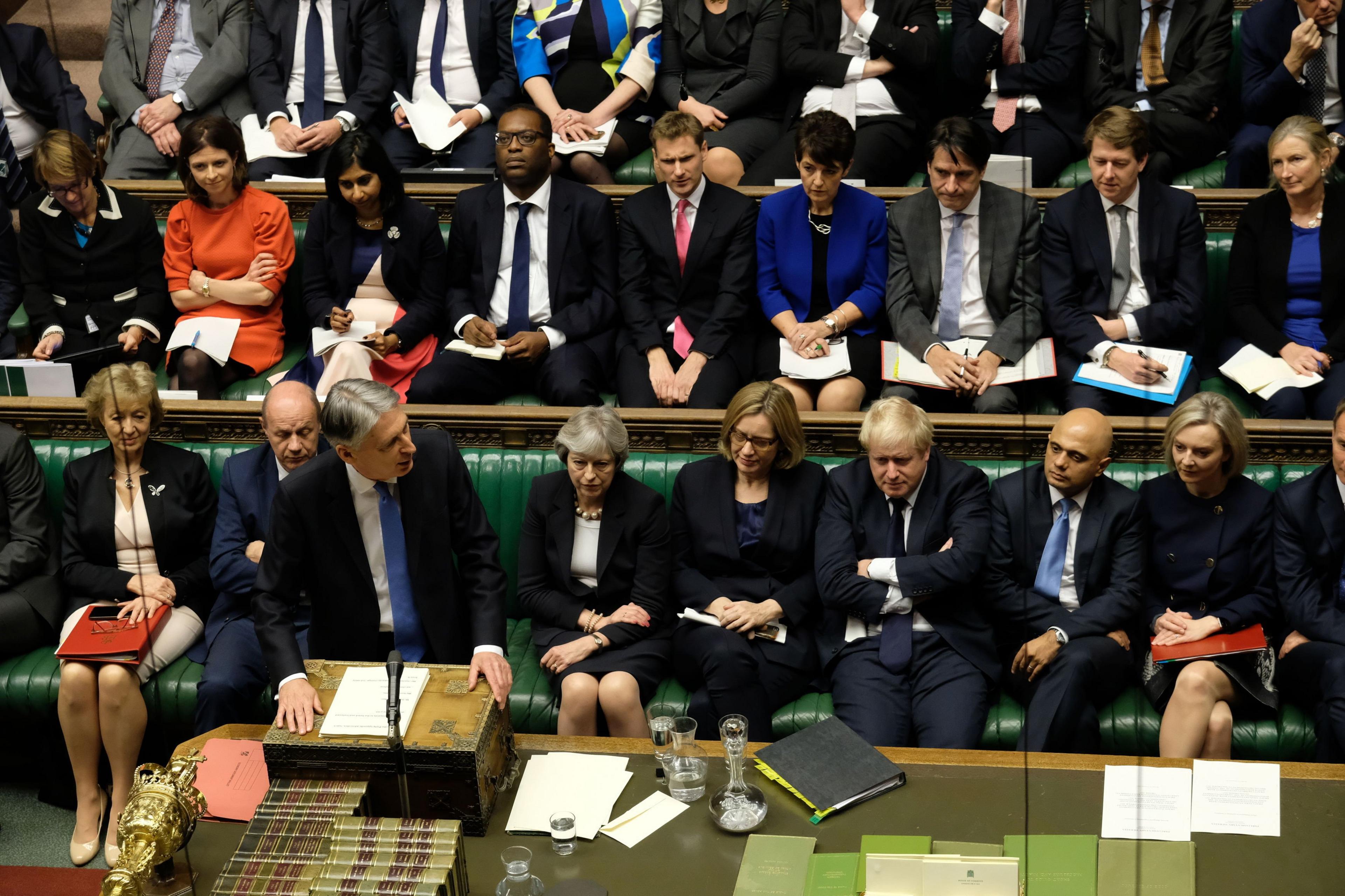
You sent us your questions on the Budget. Our business reporter Simon Read gives you the answers.

Has a rise in the state pension been confirmed for 2018, asks Richard from Hull?
The Chancellor confirmed that the weekly basic state pension will rise by 3% in April 2018 to £125.95.
People covered under the new state pension will see it increase from £159.55 to £164.35 a week.
Annual increases in the state pension are covered by the triple lock guarantee, which ensures that it climbs each year by either September's Consumer Prices Index (CPI) inflation figure, average wage growth or 2.5% - whichever is highest.
For next April's increase, the September 2017 inflation rate of 3% dictated by how much the pension would increase.

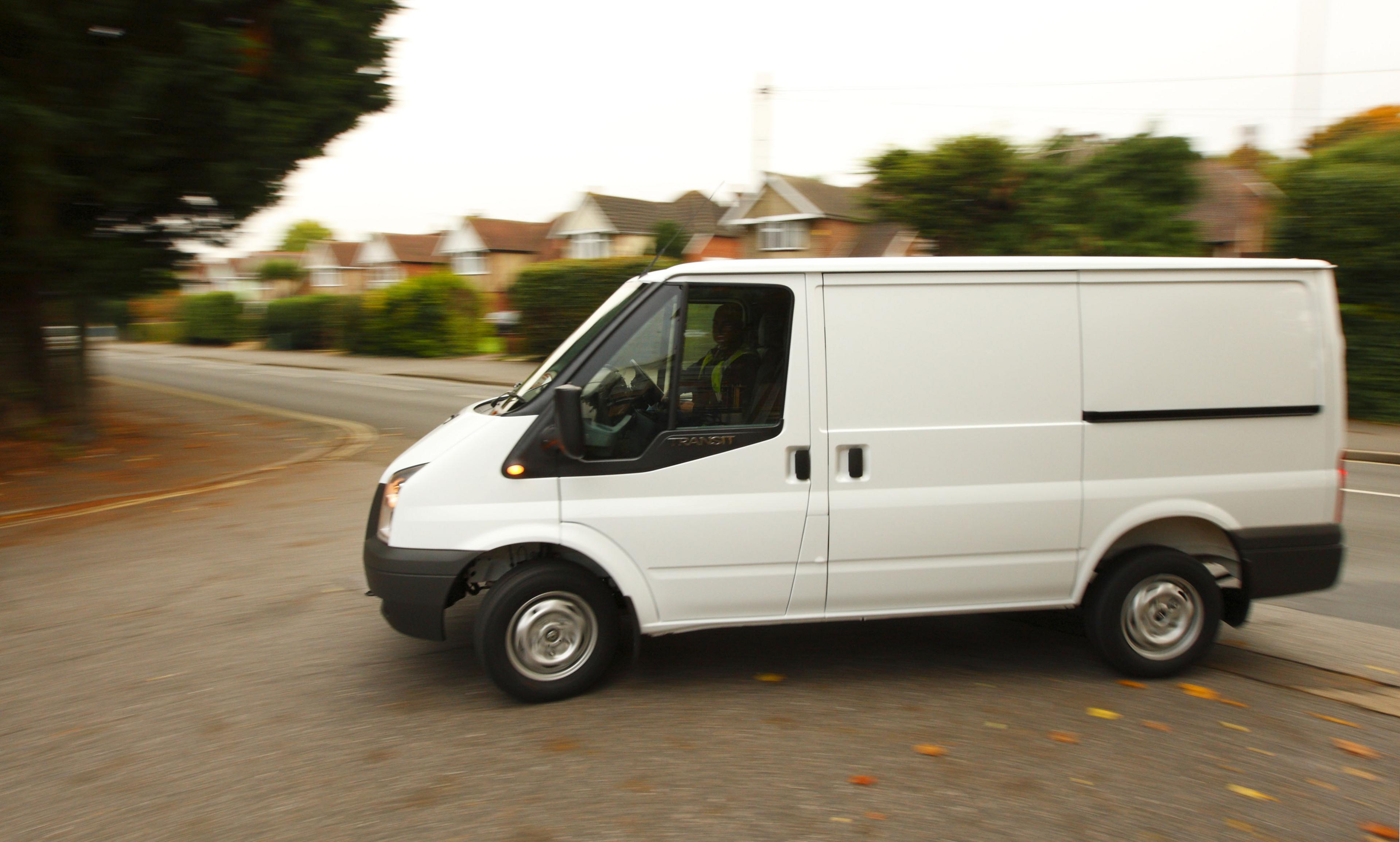
Why did the Chancellor exclude vans from the new diesel emissions banding, asks Sue from Worcester?
The Chancellor is putting up road taxes on older diesel cars - but vans won't be affected.
Why? It appears that Mr Hammond simply wanted to avoid negative headlines.
When announcing the changes, he said: "We only apply the measures to cars. So before the headline writers start limbering up let me be quite clear: no white van man or woman will be hit by these measures."
From April 2018, first year rate vehicle excise duty (VED) for diesel cars, that don't meet the latest emissions standards, will increase by one band.
VED is based on a vehicle's CO2 emissions and the cost for the first 12 months ranges from zero to £2,000.

Mr Hammond said a freeze in Air Passenger Duty for most passengers would be "paid for by an increase on premium-class tickets". Does that mean premium economy tickets and above, business and first class included? Or is premium economy classed as economy, asks Kevin?
It's not as simple as that! There are currently three rates of APD: reduced, standard and higher.
The reduced rate is charged on normal flights, which covers economy seats and possibly premium economy, but it all depends on the size of the seat.
That's because APD is charged at the standard rate "if any class of travel provides a seat pitch in excess of 1.016 metres (40 inches)".
The higher rate kicks in on "flights aboard aircraft of 20 tonnes and above with fewer than 19 seats".
The short-haul APD rates for the tax year 2019-20 will remain at their present levels, £13, £26 and £78 respectively.
The long-haul reduced rate for the tax year 2019-20 will be frozen at the 2018-19 level of £78.
The long-haul standard rate will increase by £16 to £172 and the higher rate will increase by £47 to £515.


The Chancellor said that duty on beer, wine, spirits and most ciders will be frozen, equating to 12p off a pint of beer and £1.15 off a bottle of whisky. How does not putting tax up lead to a reduction in price? Surely it just stays the same, asks John from Rossendale?
Alcohol duty rates are expected to rise by inflation each year.
If the Chancellor hadn't announced a duty freeze, then prices would have climbed 3%, in line with September's inflation rate.
So while you're right in pointing out that prices will remain the same, drinkers will still benefit from the scrapped planned increases which will mean they will pay less than expected for beer and spirits next year.

Does the increase in personal allowance apply in Scotland, asks Alastair?
We don't know yet, but should find out in December.
While the Chancellor announced in the Budget that tax-free personal allowance on income tax will rise to £11,850 in April 2018, that won't necessarily apply to Scottish Income tax as that is now set by the Scottish government, which is due to make it's decision next month.
At present the personal allowance for people who live in Scotland is £11,500, the same as the rest of the UK.
But the level at which higher 40% tax falls due is lower in Scotland at £43,001, compared to the £45,001 level for the rest of the country.

I cannot see any further moves to change the way in which contractors/consultants operating through limited companies are taxed. Were there any budget proposals announced, asks Tony from London?
The Chancellor didn't mention in the Budget proposals to extend the IR35 tax avoidance reforms to the private sector.
But details are included in the Autumn Budget policy paper, external. It states: "The government will carefully consult on how to tackle non-compliance in the private sector, drawing on the experience of the public sector reforms, including through external research already commissioned by the government and due to be published in 2018."
That suggests the possibility of a clampdown on limited company contractors working as disguised employees to avoid paying PAYE tax and National Insurance contributions.

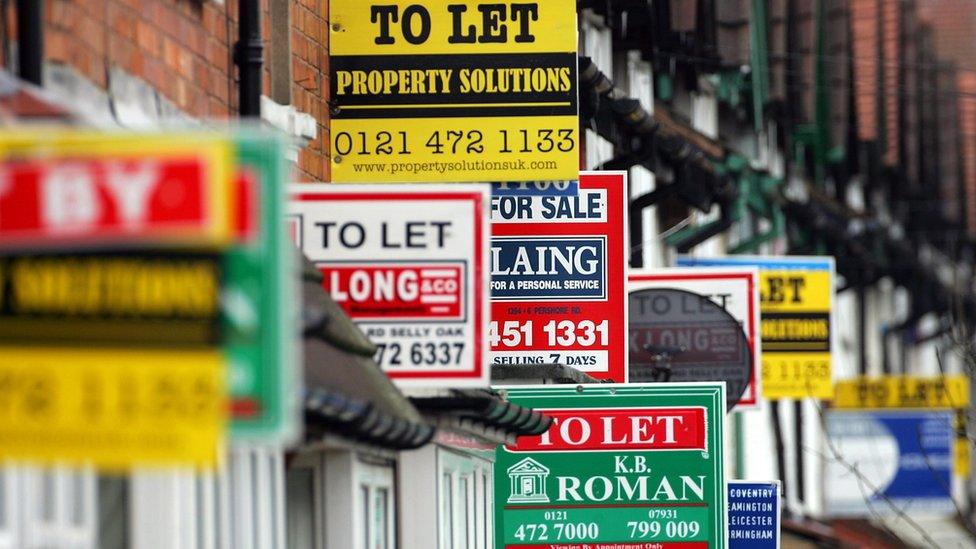
Surely the cut in stamp duty for first-time house buyers will only push those house prices up, as it would increase their ability to pay, asks Stuart Alexander?
That's a fair point. The Office for Budget Responsibility says: "The consequence of introducing the relief will be to increase house prices.
"Thus, the main gainers from the policy are people who already own property, not the first-time buyers themselves."
Some first-time buyers will be able to buy properties they couldn't otherwise afford, but "more expensively", the OBR warns.

Our son is a first-time buyer and buying a flat in north London with his girlfriend for £520,500. Will he benefit from the stamp duty cuts and if so, how much will he save as a result of the Budget announcement, asks Suzy Turnbull?
He won't save a penny.
The Chancellor has abolished stamp duty on homes under £300,000 for first-time buyers from 22 November.
Meanwhile first-time buyers of homes worth between £300,000 and £500,000 will not pay stamp duty on the first £300,000, which should save them around £5,000.
But there's no relief for people buying properties worth more than £500,000 so there's absolutely no good news in the announcement for your son.

Does the stamp duty abolition apply to those who have exchanged contracts although not completed yet, asks Amber Nash of Braintree?
Yes. If you complete your purchase after 22 November 2017 you'll be in line to benefit from the new reliefs.
But bear in mind that you must file your stamp duty land tax return and make any payments within 30 days of completing your purchase.
If you fail to do so you could be charged penalties and interest.

Is the stamp duty discount on the £300k-500k houses London-only or nationwide, asks Chris Keens via Twitter?
It's for first-time buyers who are buying homes across England and Northern Ireland, although it will only be likely to benefit people buying in areas where property costs more, such as London and the south-east of England.
Those potential homeowners buying properties worth between £300,000 and £500,000 will not pay stamp duty on the first £300,000 of their new home, which should save them around £5,000, according to government figures.

What does 100% council tax premium to be levied on empty properties mean? Is this a double charge by virtue of the word premium, asks Nigel from Epsom?
The word 'premium' just refers to an extra charge. In fact local councils have been able to charge a council tax premium on empty properties since 2013.
Since 1 April that year councils could charge up to 50% extra council tax on properties that have been unoccupied and unfurnished for two years or more.
The Chancellor has simply raised the extra amount councils can charge - the premium - to up to 100% of the council tax charge.
- Published22 November 2017
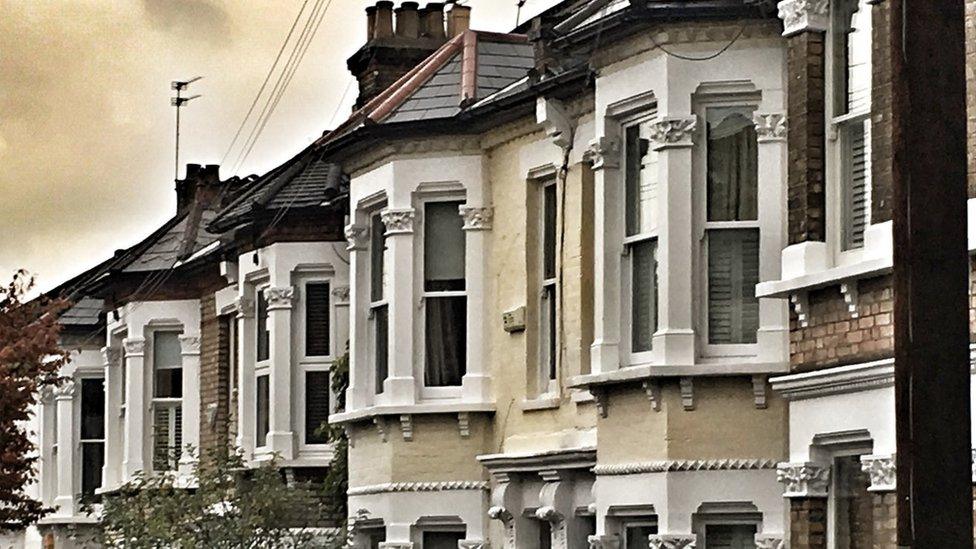
- Published22 November 2017
